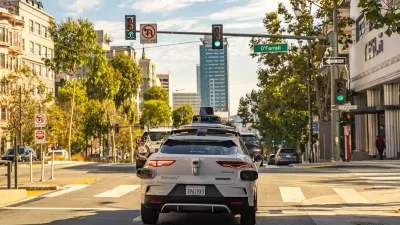Is there a correlation between running red lights and more violent crime like robberies and homicide? Gabe Klein, Chicago's distinguished outgoing transportation commissioner, thinks so. It's been dubbed "the broken windows effect."
Chicago Transportation Commissioner Gabe Klein resigned on Nov. 29. In an "exit interview with Chicago Mag, (he) predicted that in the next few years, cities will be paying more attention to the correlation between lawbreaking by drivers and other kinds of crime," writes Tanya Snyder for Streetsblog.
Klein has observed that correlation in Chicago "where you have people speeding, running stop signs, drunk driving,,,you also have rape and muggings and murders.”
“I think it’s a broken windows effect,” Klein said. “If you get control of the traffic crime, I think it can go a long way.”
Refresher from U.S. Department of Justice e-newsletter: "Broken windows is based on the notion that signs of incivility, like broken windows, signify that nobody cares, which leads to greater fear of crime and a reduction of community efficacy, which in turn can lead to more serious crimes and greater signs of incivility, repeating the cycle into a potential spiral of decay."
It's not a novel observation. Two days prior to the publication of the Chicago Magazine interview, Streetsblog wrote about former NYPD commissioner, Bill Bratton, making the same observation.
And the federal government is looking into the correlation. Snyder points to a law enforcement operational model called the Data-Driven Approaches to Crime and Traffic Safety (DDACTS) that is "supported by a partnership among the Department of Transportation’s National Highway Traffic Safety Administration (NHTSA) and two agencies of the Department of Justice."
FULL STORY: Fight Street Crime With Speed Bumps and Crosswalks

Alabama: Trump Terminates Settlements for Black Communities Harmed By Raw Sewage
Trump deemed the landmark civil rights agreement “illegal DEI and environmental justice policy.”

Study: Maui’s Plan to Convert Vacation Rentals to Long-Term Housing Could Cause Nearly $1 Billion Economic Loss
The plan would reduce visitor accommodation by 25% resulting in 1,900 jobs lost.

Planetizen Federal Action Tracker
A weekly monitor of how Trump’s orders and actions are impacting planners and planning in America.

Waymo Gets Permission to Map SF’s Market Street
If allowed to operate on the traffic-restricted street, Waymo’s autonomous taxis would have a leg up over ride-hailing competitors — and counter the city’s efforts to grow bike and pedestrian on the thoroughfare.

Parklet Symposium Highlights the Success of Shared Spaces
Parklets got a boost during the Covid-19 pandemic, when the concept was translated to outdoor dining programs that offered restaurants a lifeline during the shutdown.

Federal Homelessness Agency Places Entire Staff on Leave
The U.S. Interagency Council on Homelessness is the only federal agency dedicated to preventing and ending homelessness.
Urban Design for Planners 1: Software Tools
This six-course series explores essential urban design concepts using open source software and equips planners with the tools they need to participate fully in the urban design process.
Planning for Universal Design
Learn the tools for implementing Universal Design in planning regulations.
Caltrans
Smith Gee Studio
Institute for Housing and Urban Development Studies (IHS)
City of Grandview
Harvard GSD Executive Education
Toledo-Lucas County Plan Commissions
Salt Lake City
NYU Wagner Graduate School of Public Service





























